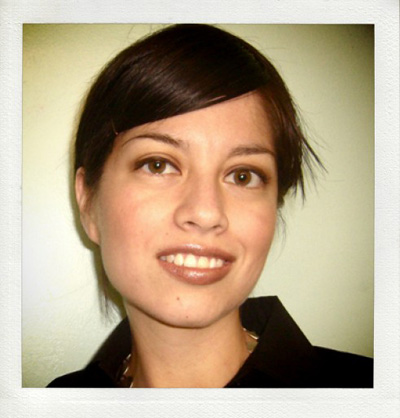From the archives: this interview originally appeared on the site on July 16th 2010.
What is your name, age, and location?
Natalia Oberti Noguera, 26, New York, United States.
What is your profession?
I am a woman innovator, founder and CEO of Pipeline.
Pipeline is a social venture startup whose mission is to ensure that every woman achieves her potential as an innovator. Pipeline envisions a world where a woman’s gender is viewed as an opportunity and not a disadvantage. Pipeline runs proof-of-concept labs to accelerate women innovators through their career pipelines, operates a social venture fund that invests in women-led triple-bottom line (TBL) startups, and produces #womaninnovator, a media campaign that increases the visibility of women innovators.
What did you study in school and what degrees do you have?
BA in Comparative Literature & Economics, Yale University. MSc in International Healthcare Management, Bocconi University. MA in Organizational Psychology, Teachers College, Columbia University (in progress).
What was your first job?
Yale’s Phone Program – I called alumni and asked for money. It was a great way to learn about metrics, connecting with someone, and pitching. I loved hearing people’s stories as they reminisced and felt lucky to be part of a community that had good memories from their time at Yale.
Who or what inspired you to break into your current line of work?
The book Princess by Jean P. Sasson deeply impacted me. Princess narrated the life story of a Saudi Arabian princess. Growing up, she and her brother were like two peas in a pod. Then, suddenly, as they were reaching puberty, their common journey abruptly ended and separate paths began. My feminism was cemented the second I realized that Sultana did not have the same choices her brother did and I have advocated for gender equity and women’s empowerment since then.
Name/describe what has been your most rewarding project so far?
From launching Yale’s first photography journal, The Gaze, to linking women innovators with each other, sharing their stories via #womaninnovator (Pipeline’s media campaign), and providing programs to accelerate women innovators in their career pipelines, the projects I am most proud of are those where I serve the roles of community builder, platform-creator, and matchmaker of needs with resources.
Name/describe one incident when being a woman has helped your career?
In her book The Loudest Duck, Laura Liswood asks the reader to think about what the elephant in the room needs to learn about the mouse in the room, and vice-versa. While the elephant sees no reason to learn anything about the mouse, the mouse’s survival depends on knowing everything about the elephant. Similarly, non-dominant groups, such as women and people of color, learn to be more observant and adaptable.
As a woman, I am aware of what I term on Twitter as the #genderskewed perspective that the media, individuals, and even language perpetuate. Being a woman has given me the opportunity to view the world through a gender lens and this has helped me learn from both the mouse and the elephant throughout my career pipeline.
Name/describe one incident when being a woman has hindered your career?
Being a woman has not hindered my career – it created it.
Who is your role model or mentor (alive or dead)?
My role models tend to break stereotypes and inspire me to do the same. For example, Anne Mulcahy grooming Ursula Burns to succeed her as Xerox’s CEO. Women can and do help each other succeed in their career pipelines.
If you could give one piece of advice to a woman starting out in your field, what would it be?
As a woman innovator, learn at a minimum a second language and realize that language matters. Languages come with different cultures and ways of communicating, even thinking. The subtle differences and similarities between languages will expand your expectations for what’s possible while emphasizing the importance of finding common ground.
Links:
– Interview by Elena Rossini


